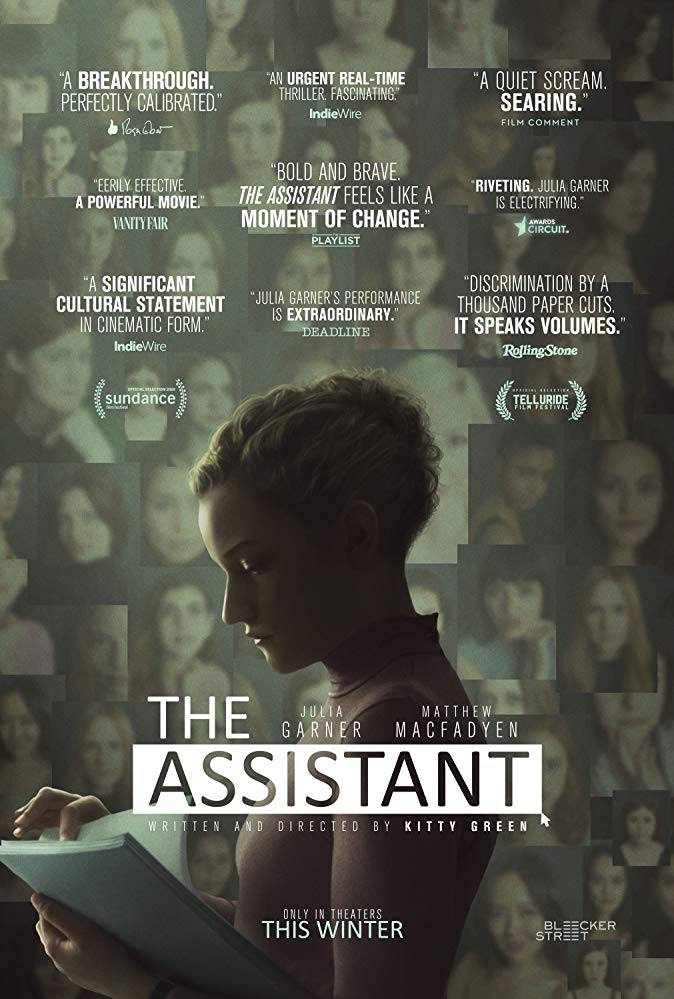The truth is necessary but can often come at a cost. Do you risk speaking up only to have your own world crumble before your very eyes? Is the truth worth the pain and humiliation it can cause you to endure? Director/Writer/Producer/Editor extraordinaire Kitty Green explores these questions in “The Assistant,” a film that simmers on low for the entire runtime, only to come to a boil once you reflect as the credits hit the screen.
Jane (Emmy award winner Julia Garner) lands a job straight out of college as an assistant to a powerful entertainment executive. The film consists solely of one, long workday, beginning with Jane getting in a taxi half asleep before the sun has begun to rise to closing the office late at night with her other colleagues. We follow her day-to-day routine: Turning on computers, making copies, cleaning up after her boss, and teaching a new assistant the basics.
This presence of this new assistant takes the story in an interesting direction. Jane asks the young woman questions about her past, only to discover she’s severely underqualified for the position, yet is personally placed in a luxurious hotel while she is working in the city by her boss. Coming from Idaho, she worked as a waitress in a restaurant that their boss visited on a business trip.
This is when the pieces start to come together for Jane and the audience, and it’s soon realized that her boss is not who he seemed to be. Rather than be a figure to look up to, he is a predator who preys on those looking to seek a boost in their careers.
It’s heartbreaking to see those you look up to in a different light, but it is necessary to understand their true character. Jane realizes this and decides to enlist the help of her HR department. Rather than be a helping hand, she is told, in a beautifully acted scene, that there is a line of others waiting for the opportunity she currently has and that by speaking the truth she is ruining her own career aspirations of one day becoming a producer.
The brilliance of the film is that what isn’t shown on screen is what stays with you. Jane’s boss, an obvious Weinstein fill in given the line of work, is never shown in the film, allowing the audience to put themselves in Jane’s shoes and question her actions against what they believe they would do in her situation.
Last year, the film “Bombshell” explored the real-life abusive behavior that occurred at Fox News but in a different way. There, the abuse was physically shown on screen, with Margot Robbie’s character often the target of sexual advances from her boss Roger Ailes (John Lithgow). While this made the audience uncomfortable to witness these actions, the film never understood or portrayed how difficult it was for these women to come forward with their stories given the power of the accused.
Unlike “Bombshell”, “The Assistant” never achieves justice. Instead, we see the struggle of spreading the truth to the world and the consequences that many unfortunately still face who are not in the position of power as Angelina Jolie was in coming forward against Harvey Weinstein or Gretchen Carlson (Nicole Kidman) against Ailes in “Bombshell”. Jane is simply an assistant without the resources. And for her, the truth and justice could not come at a higher price.









